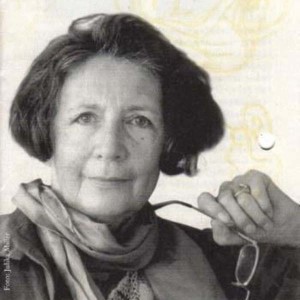
| Born: Jan 12, 1923 in Lwow, Poland |
| Died: Apr 14, 2010 (at age 87) in Saint-Rémy de Provence, France |
| Nationality: Swiss-Polish |
| Famous For: Research in parental abuse and effects on children |
Alice Miller (original name Alicja Rostovska) was a famous Swiss psychologist of Polish origin. She is known for her work and books on parental child abuse. Born in Lviv, Poland, in January 1923 in a Jewish middle-class family, Miller was smuggled out of Warsaw Ghetto by her parents and she lived with a Catholic family under a Christian name.
Miller managed to survive World War II, but she lost her entire family in the war. In 1946, Miller migrated to Switzerland, where she did her studies and won a scholarship at the University of Basel. Alice went on to earn her doctorate in 1953 in psychology, philosophy, and sociology. Thereafter, Miller studied psychoanalysis until 1960 and started working as a psychoanalyst in Zurich.
Miller’s Career
Miller worked as a psychoanalyst and analyst trainer for almost 20 years before she stopped practicing and teaching to explore childhood systematically. She was critical of Carl Jung and Sigmund Freud and she wrote books on her research work on topics she considered as blind spots in psychoanalysis.
In 1987, Miller announced her rejection of psychoanalysis and in 1988, she resigned from the International Psychoanalytical Association and Swiss Psychoanalytic Society. Later in her life (from 2005 until her death in 2010), Miller spent her time answering letters from readers on her website.
Personal Life
Alice was married to Andreas Miller, a Swiss sociologist and Polish Catholic. She moved with Andreas from Poland to Switzerland as a student in 1946. They had two children, Martin and Julika. However, their marriage fell apart when they got a divorce in the 1960s.
In her informal biography, Miller has written about the difficult childhood where she had to suffer a lot of emotional trauma which later helped her in her work on child abuse and child psychology.
Contributions to Psychology
Alice Miller was an icon of psychological thought, and she developed her material from both her professional and personal understandings. Her first book, The Drama of the Gifted Child, was published in 1979 under the title Prisoners of Childhood.
The book is about the children who suffer trauma and permanent scarring at the hands of parents who use means such as physical punishments or psychological pressure on their children. These damaged children, according to Miller, suffer mental trauma, depression, and anxiety throughout their life and pass on the abuse to the next generation.
Most of her work resembles closely to that of Marguerite Sechehaye and Frieda Fromm-Reichmann. Just like those authors, Miller also laid emphasis on the psychoanalytic principles of regression and repression. She believed that the evolution of personality is based on the events in early childhood. Miller maintained that in very early childhood, some parts of our true self were split-off from us as a result of the way we were treated by our primary caretaker.
Miller’s Publications
Miller wrote and published several other well known books, including For Your Own Good: Hidden Cruelty in Child-Rearing and the Roots of Violence (1983). In this book, she proposed that Hitler’s father traumatized the young Adolf with beatings and verbal abuse, which had a major impact on Adolf’s personality throughout his life.
Her book Thou Shalt Not Be Aware: Society’s Betrayal of the Child (1984), won a literary award in 1986.